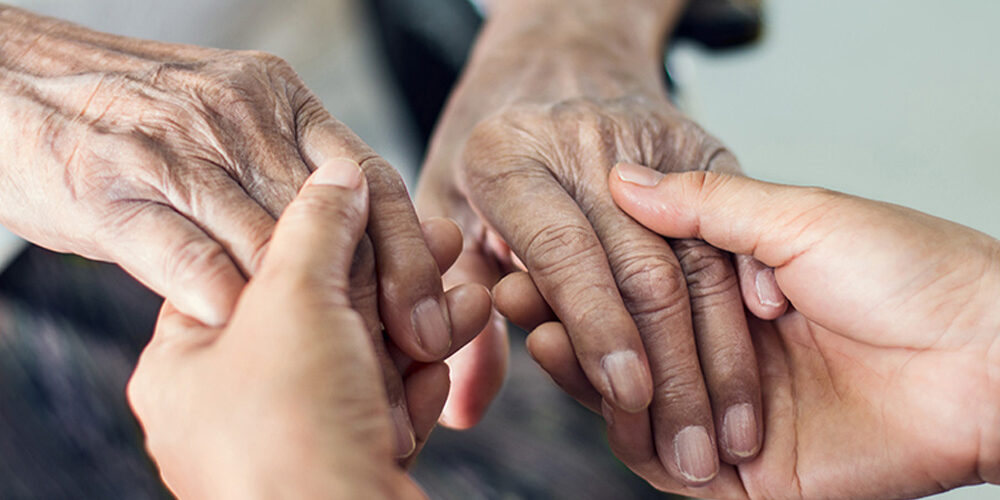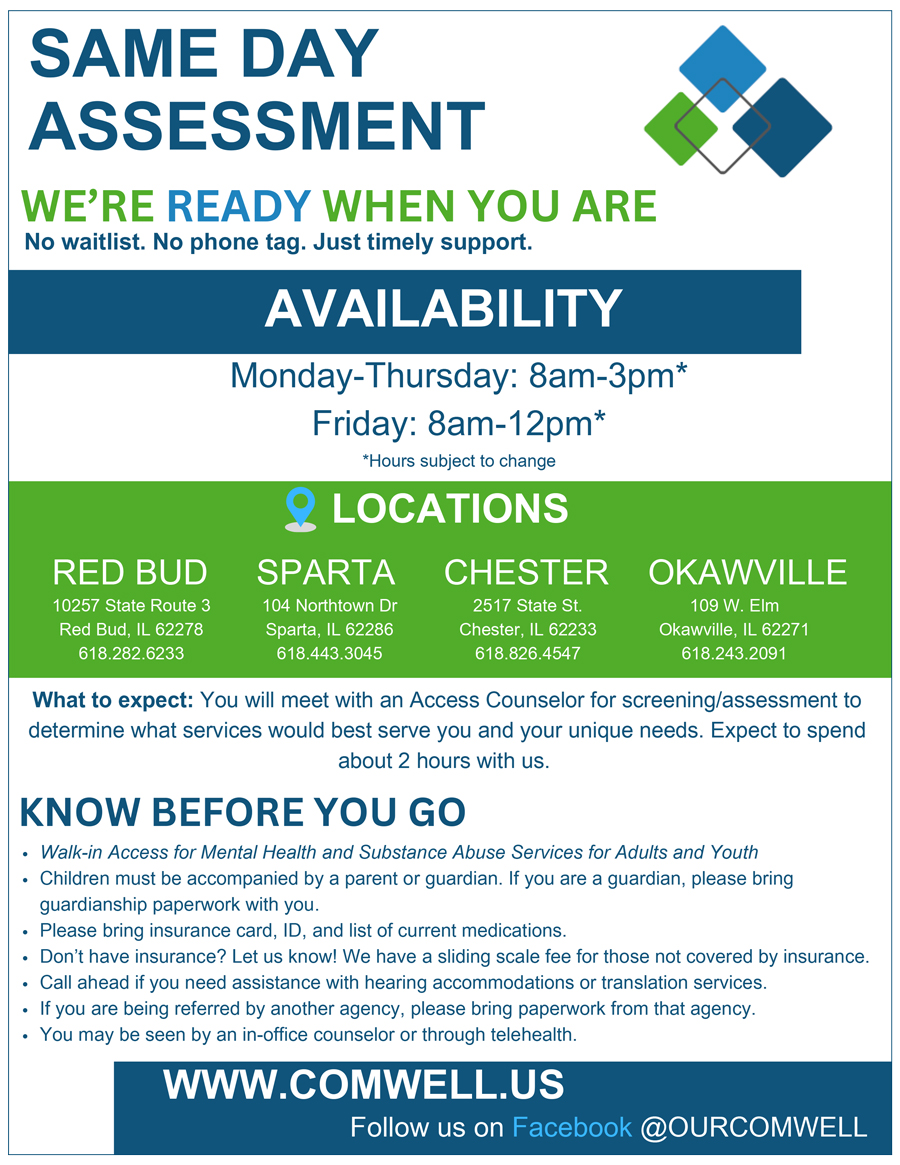Compassionate services are provided to all ages through individual, family and group counseling. Our skilled clinicians can help you get back to living life to the fullest in a safe, welcoming, trauma informed environment. ComWell provides mental health counseling services to Randolph County IL, Washington County IL, and Southern Illinois.
ComWell Crisis Line: 1-888-855-0034

Southern IL Mental Health Counseling
Psychiatric Services
Our psychiatrist and nursing staff provide psychiatric evaluations as well as monitor medications and health interactions for clients in our behavioral health services.

Same Day Assessments
No wait list. No phone tag. Just timely support.
Same Day Assessment is a walk-in based counseling program. The purpose of this program is to provide readily available services to individuals seeking mental health and substance misuse counseling. When someone needs help and is ready to begin counseling, they can simply walk into our office and be seen the same day. First visits will no longer require appointments.

Short on time? Print and complete the form at home and then bring it with you when you come into the office!
Don’t have a printer? No problem. You can come into the office to get a copy to complete at home or you can fill it out when you come in for SDA!

Community Support
The recovery coaching staff ensure optimal use of community based services and benefits for individuals with severe and persistent mental illness as well as group and individual skill building activities focused on assisting individuals with a mental illness to achieve their personal goals.

Call 4 Calm
The Illinois Department of Human Services’ Mental Health Division launched a free-of-charge emotional support text line, Call4Calm, for Illinois residents experiencing stress and mental health issues related to the COVID-19 pandemic.
Individuals who would like to speak with one of our mental health professional can text “TALK” to 5-5-2-0-2-0, or “HABLAR” to the same number: 5-5-2-0-2-0. Call4Calm is free to use, and individuals will remain anonymous.
Once an individual sends a text to the hotline, within 24 hours they will receive a call from a ComWell counselor to provide support.
Mobile Crisis Response Counseling
Our goal is to provide support to people during times of crisis through caring and confidential conversations.
We do this by providing the community with confidential crisis services through gentle and understanding discussions of crisis resolutions, and referrals to appropriate community resources.
ComWell defines a crisis as someone experiencing hopelessness, delusions, thoughts of self-harm or thoughts of causing harm to others and psychosis resulting in the inability to care for one’s self. ComWell’s crisis services are not intended to replace long-term counseling or individual therapy.
Mobile Crisis Response Goals :
Please call Mobile Crisis Response if:
- willing to meet with Mobile Crisis Response
- is having suicidal ideations
- is unsure whether psychiatric hospitalization is necessary
- needs crisis de-escalation, emotional support or referral to community resources
What an individual can expect during a visit:
Counselors will talk with you about the situation and help you explore the options available. We hope to help people feel safe and stable in the least restrictive environment possible. For most of our clients, that means staying at home. If higher levels of care are needed and agreed upon, we will work with you to get you to a place where you can remain safe and stable.
After a visit, an individual can expect:
A Mobile Crisis Follow-Up Counselor will schedule a follow-up call the next day. Follow-up is intended to reinforce any plans made during the Mobile Crisis contact and help connect clients with community services that can support them long-term.
Meeting You Where You Are
What this means to us:

Children & Families
Our Comprehensive Community Based Youth Services (CCBYS) funding allows us the opportunity to provide services that stabilize families and help them resolve issues that can lead to a crisis situation. A few examples of circumstances we have help prevent are: youth running away from home and family lockout situations.
It is important to know that staff within our crisis program will provide on-going support to the individual or family to ensure that the crisis situation has resolved, and the family or individual have been linked with services that will prevent a future crisis from occurring.
